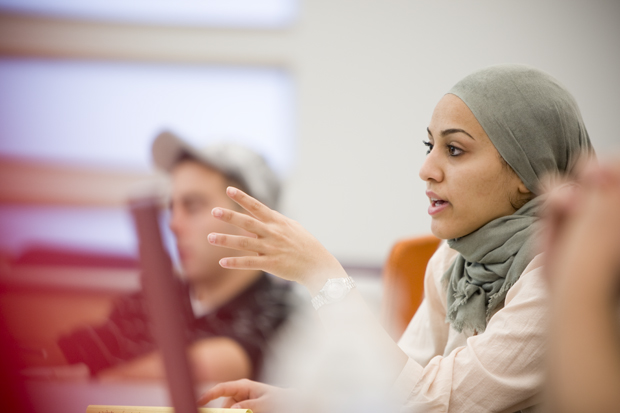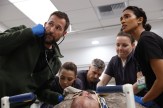Advancing women in academia

Northeastern ADVANCE, a National Science Foundation-funded program designed to increase the representation and advancement of women and minorities in academic science and engineering careers, levels the academic playing field, said Jan Rinehart, the program’s executive director.
“Programs targeted for women and minorities are important because they can be left out of informal information circles and are not always privy to nonwritten rules,” she explained. “And if you don’t know the rules of the game, you can’t play and win.”
The initiative’s innovative approach, which focuses on building an increasingly global and interdisciplinary research environment, helped increase the percentage of Northeastern female faculty members from 20 percent in 2007 to 24 percent in 2011.
Sara Wadia-Fascetti, professor of civil and environmental engineering and director of ADVANCE, which operates within the Office of the Provost, noted the initiative’s two main goals: to diversify the faculty and to change the culture of the university. To achieve these goals, the program offers a variety of workshops and services to all faculty members as well as doctoral candidates and postdoctoral researchers.
One project, Strategies and Tactics for Recruiting to Improve Diversity and Excellence, or STRIDE, seeks to “maximize the likelihood that diverse, highly qualified candidates will be identified, recruited, retained and promoted at Northeastern,” Wadia-Fascetti said.
STRIDE teaches search-committee members good practices in part by helping them identify implicit bias. “This is so much more subtle than a stereotype,” Rinehart said. “It’s an unquestioned assumption that you’re not even aware of.”
Letters of recommendation for women, for example, tend use words that are communal, whereas letters for men tend to use words associated with leadership and authority according to various organizational psychology studies.
“When you’re hiring a new faculty, you’re looking for people who are effective leaders,” Rinehart said.
ADVANCE also offers External Career Mentoring Teams to help junior faculty members network and build their external reputations. In 2010, the first ECMT was offered to science and engineering faculty members, which department chairs said increased national visibility among those who participated.
In the fall, ADVANCE will offer mentoring teams for the social sciences as well as a leadership skill development program for midcareer faculty members. The program will comprise a series of eight two-hour courses over the fall semester that help faculty build skills to become center directors and research leaders.
Throughout the year, ADVANCE hosts future faculty workshops in conjunction with external conferences hosted by Northeastern. These workshops are open to all doctoral students and postdoctoral researchers regardless of institutional affiliation.
“The workshops are interdisciplinary networking opportunities intended to help participants prepare for their future careers,” Wadia-Fascetti said.
Stephen Director, provost and senior vice president for academic affairs, said the initiative benefits the entire university community.
“From my past experience and from working with Northeastern ADVANCE, I find that changes made in the institutional culture are positive for everyone, even though the activities and goals specifically address women and ethnic minorities,” he explained.
“We’ve found that what’s good for women and minorities is good for everybody,” Rinehart added. “It helps everyone every time you make information and processes explicit and transparent.”





